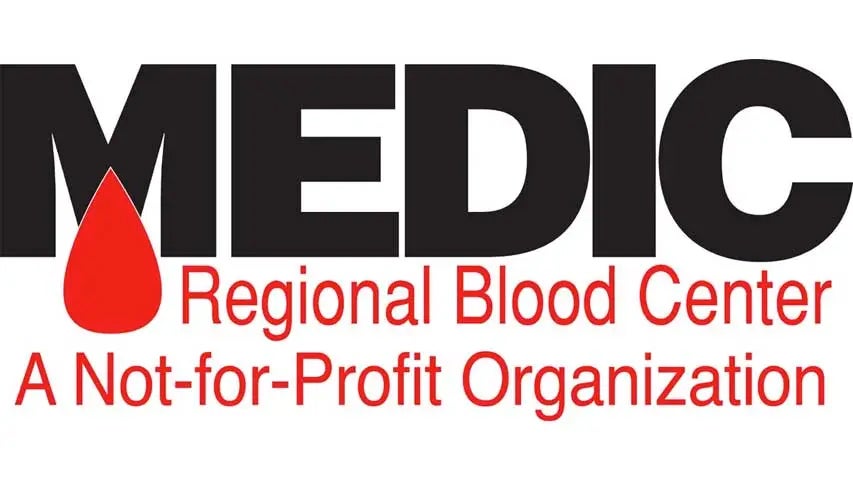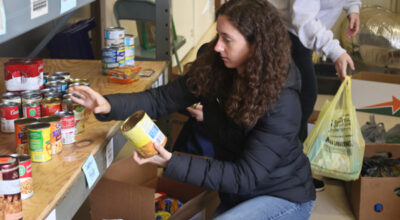Blood centers say supplies are low, need is high
Published 1:43 pm Monday, January 23, 2023
|
Getting your Trinity Audio player ready...
|
JORDAN BROOKS
jordan.brooks@middlesboronews.com
According to the Red Cross, every two seconds in the U.S. someone is in need of blood.
With demand so high, January is recognized as National Blood Donor Month.
Kristy Altman, director of communications and public relations for Medic Regional Blood Center, spoke about the high demand and why it is important to donate blood.
“It is a concerted effort across the country, and across the world, by blood centers to highlight blood donors and their contributions to the patients across the country,” Altman said.
The number of people eligible to donate is limited and the actual number of people who give blood is even smaller, she said.
“We thought for years that–there’s only 38% that’s eligible to donate, and only 3% donate,” Altman said. “And the newer numbers are showing that only 2.5% of people that are eligible to donate actually donate.”
One common concern for those who wish to donate is eligibility. According to Altman, all blood centers are regulated by the U.S. Food and Drug Administration, and the extensive questionnaire before donating helps ensure donated blood is safe for transfusion
“People want to know always why we have to ask so many questions and why over and over, but that’s because it’s an FDA requirement,” said Altman.
Altman said some of the more significant things that will be asked during the questionnaire are about travel, medications as well as a lot of more personal questions.
“So if folks have been traveling out of the country we need to know where they went and for how long they were away,” she said. “This is important because there are various infectious diseases from across the world that you could possibly come in contact with or contracted while away that would cause a deferral with us.”
According to Altman, some questions will prompt other questions to get a better understanding of one’s current health and understanding if ones blood is transfusable.
“We will also ask you about your medications, we will give you a list of medicines to review,” said Altman. “You’re going to need to tell us if you’re on any of those, or if there are any medications that you are on it’s always good to ask if it’s under deferral or not because some of these can keep the blood from being transfusable to another person.”
Lastly, the personal question section of the medic questionnaire is perhaps the most thorough section. It includes questions regarding pregnancy, incarceration, cancer diagnosis and sexual activity.
A more thorough list of eligibility requirements is on the medic website, such as the minimum height and weight requirement to give blood, the minimum age, since any one smaller than 115 pounds over the age of 17, for example, could have an adverse reaction to losing blood.
After the initial screening, blood is sent off for testing to ensure it is transfusable to another person. However, there is an additional perk to donating.
“When we draw your blood we’re going to draw a sample tube every single time, and we send those sample tubes to a lab, and that lab is going to test that sample for a variety of infectious diseases,” said Altman.
One of the things that is included in this testing is blood typing, which is necessary to blood donation centers, because they need to know how best a donor’s blood can be used, such as for a whole blood donation or for platelets or plasma, and matching donors to recipients. It is useful for one to know their blood type according to Altman to plan for an emergency, migrate certain health conditions, as well as planning for pregnancy.
“If someone doesn’t know their blood type, they can pop by a bus or a set up and have their blood typed on site,” said Altman.
As of right now, blood supply levels are at what medic deems a “low inventory status,” which means there is less than a four and a half day supply of blood available. At the beginning of January, medic was under a critical alert for type O-negative blood, meaning there is less than a two-day supply of blood on the shelves.
“Every hospital has a standing order with us, and we send it to them, and whenever there is an emergency or a stat order they send that separately to us, we fill it and we send it over,” said Altman. “What we had [at the beginning of January], is we came in and there was no O- on the shelf.”
According to Altman, with a “yellow” inventory status, hospital orders are typically able to be filled and there is an adequate stock of blood available in case an emergency should arise. Altman encourages donors to make regular blood donation appointments every 60 days to help stabilize the blood supply should emergencies and shortages arise.
“We do a lot of work with Kentucky Blood Center and Knoxville,” said Altman. “We do a lot of competitions with them, so if something were to happen we could call them and we could say ‘could you send us some blood units?’ and if they had any they could, but if we’re all at a critical level, none of us have it to be able to send to one another.”
To donate, you can find a location on medicblood.org under the “Donate” tab, either by searching by zip code, county, or city, and you can see upcoming blood drives within 25 miles within your chosen time frame. The website will then show you the times they’ll be set up as well as the address, and from there you can choose your appointment time. The next Medic blood drive is 11 a.m.-5 p.m., Jan. 26 at Food City in Middlesboro.







